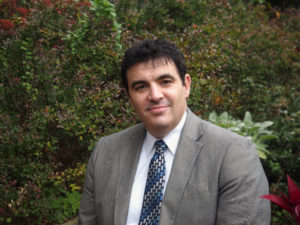
Admission Psychology Blog Focus: Understanding What Global Awareness Means in College Admissions
By Justin M. Buffer, M. ED- Expert College Admissions Coach & Founder, Owner & Head Educator , Cambridge Learning & College Planning Center of New Jersey

*******************************************
In my many years of experience as a college admissions counselor, I’m often asked what Ivy League universities and other top-tier colleges really mean by the phrase “global awareness.” Parents and students frequently encounter this term in college brochures and other marketing materials.

“Does this mean I have to have traveled to many countries?” one of my students recently asked me.
“Not exactly, but that can help,” I replied. “It’s more about having a sense of how the world works in an interconnected way—across cultures and disciplines,” I told her.
When Ivy League and top-tier colleges emphasize “global awareness” as a valued quality in applicants, they’re not necessarily looking for someone that is an expert about current world affairs, although my top-level admits s usually do have a rudimentary grasp of major world events.
Global awareness moreso means demonstrating the ability to think beyond your local community and connect with people from different backgrounds and perspectives. It’s about showing that you’re not insular in your personality or worldview—that you have a basic and developing recognition of the world as vast, interconnected, and full of opportunities to learn. It also reflects an understanding that no single perspective is “right” or “wrong” and that we all share a common human experience.

Last year, I worked with a student who was ultimately admitted to Cornell, whose application and background perfectly embodied global awareness. He had traveled to the Amazon rainforest and wrote his Common App essay about the profound impact of his experiences there, particularly how immersing himself in a completely different environment challenged his assumptions and broadened his understanding of sustainability, cultural preservation, and the shared challenges facing humanity. He reflected on the stark contrast between the simplicity of life in the Amazon and the materialism and relentless pursuit of upward mobility he observed in the United States. His teachers and volleyball teammates affectionately nicknamed him “The Travel Bunny” because of his many ventures.
That reputation—earned through his consistent curiosity and engagement with different cultures—stood out to admissions officers. He was accepted to several top-tier schools not just because of where he had been, but because his expression of those experiences demonstrated a broader mindset. His travels revealed that he wasn’t merely curious about the world; he was eager to learn from it and apply those lessons to his academic and personal growth. He also showed an understanding that his perspective was just one among many, recognizing the value of learning from others.
On the flip side, a lack of global awareness often becomes apparent in a college application when a student’s experiences, essays, and activities are confined to their immediate cultural group or local community. For instance, if an application highlights only events or achievements within a single, insular environment—such as your school, neighborhood, or cultural circle—it may signal to admissions officers that you haven’t stepped outside your comfort zone. Essays that focus solely on familiar topics without reflecting on broader perspectives—or activities that don’t demonstrate curiosity about diverse viewpoints—can reinforce this impression. Colleges are looking for students who are ready to engage with a variety of people and ideas, so failing to showcase interactions or understanding outside your cultural bubble could make your application feel limited and less compelling.
As I always say, “Colleges are focused on building communities, not just letting in individuals.” To fit in at top colleges, admissions committees need to see that a student will be open to people of various backgrounds and experiences.
Global awareness isn’t limited to international travel, but a demonstrated willingness to step outside your comfort zone and view the world through a wider lens is critical. Whether it’s exploring a remote corner of the world, engaging in meaningful conversations with people from different backgrounds, or reading about issues affecting other cultures, what matters most is the mindset. Admissions officers can detect a globally-minded perspective through recommendation letters, the activities a student chooses in high school, and how they write about their experiences.
For example, one of my recent Princeton admits, the Vice-President of her school’s Model UN, stood out because of her ability to articulate how she grew from debating complex global issues with students from diverse backgrounds. Colleges are looking for evidence that you’re not just aware of the world but ready to engage with it. If you can demonstrate that you see beyond the borders of your immediate environment, you’ll stand out as someone prepared to thrive in an increasingly globalized world.
About Mr. Buffer: Mr. Justin M. Buffer is a 1-on-1 college admissions planner who works with students and families across the world on college admissions. He is a seasoned expert in education, college planning, and admissions, with a master’s degree in Educational Psychology. He is also a licensed teacher with many years experience in the classroom and has a proven track record of helping students uncover their unique stories and gain admission to top universities. You can learn more about Mr. Buffer by clicking here: https://educationandinspiration.com/a…
